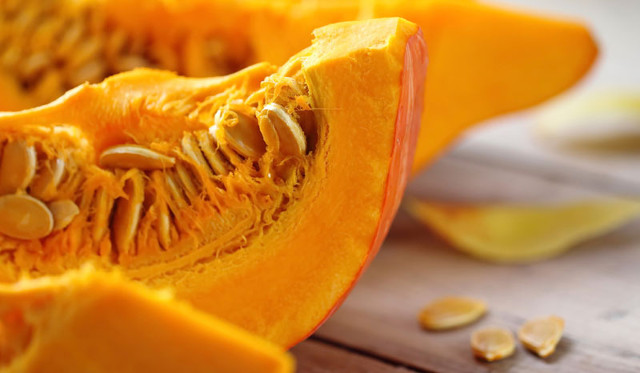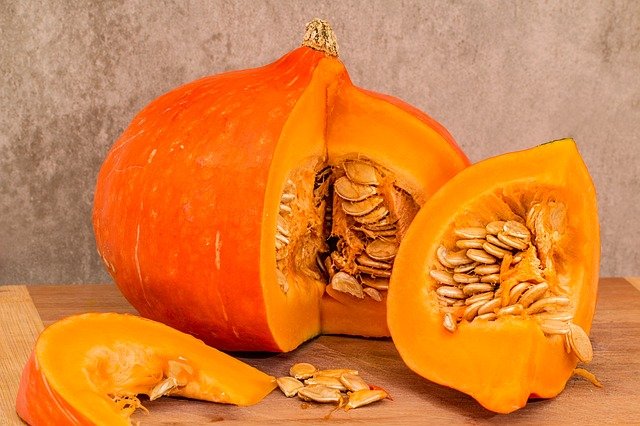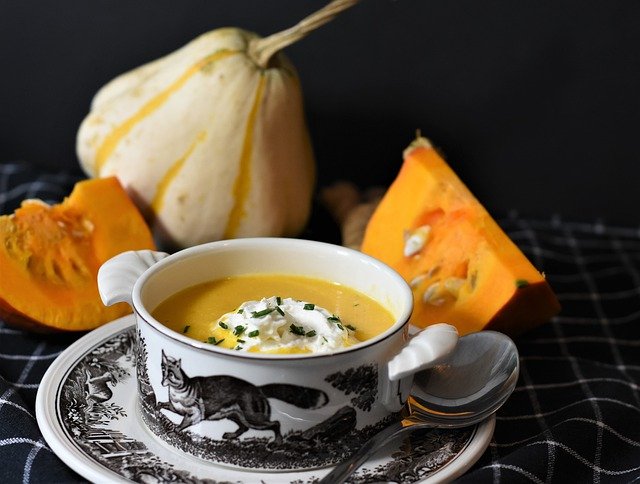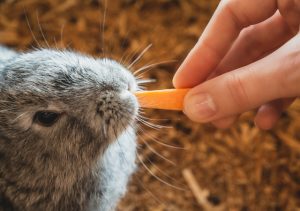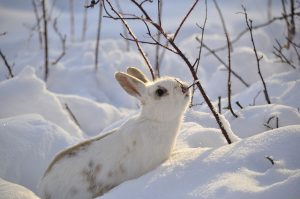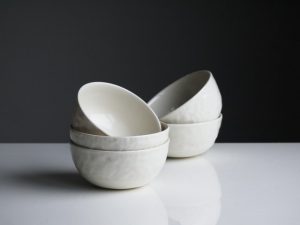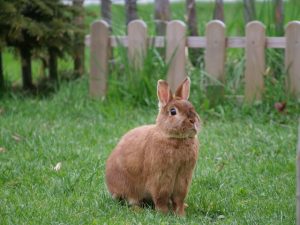Contents
- What About The Seeds, Plants, Or Cooked Pumpkin?
- Frequently Asked Questions
- How many pumpkins can a rabbit eat?
- Can rabbits eat the whole pumpkin?
- What is the best way to provide pumpkin parts to my pet?
- Does pumpkin have many benefits for rabbits?
- What is the best pumpkin for rabbits?
- What are the risks of pumpkin for rabbits?
- What if my bunny doesn't like pumpkin?
- Can rabbits eat dried pumpkin seeds?
- Can rabbits eat dehydrated pumpkins?
- Can rabbits eat butternut pumpkin?
- Can rabbits eat pumpkin leaves?
- Can rabbits eat pumpkin pies?
- Can bunnies eat pumpkin stems?
- What foods are toxic to rabbits?
Pumpkin is not poisonous for rabbits but they should not eat it too often or in larger quantities. If you check recommended food lists for rabbits you will see that pumpkin is not really on the list. This is because it's high in carbohydrates and sugars and, as we all know, they are not really that good for rabbits. You can feed him a bit of the rind -- the size of your thumb -- but not more than that. You can also give him what you carve off the Halloween pumpkin, the pumpkin guts. Not all rabbits fancy eating pumpkins. Especially the skin. Always wash the outside of the pumpkin before cutting it. The pumpkin peel, flesh, and insides (remember to remove the seeds) contain phosphorus, beta-carotene, other vitamins, and minerals but also a high amount of sugar. So, it's also too acidic and too starchy for rabbits to eat on a regular basis. This means that rabbits can eat pumpkin but in reasonable quantities, only as a treat, as they can get stomach aches.
It's ok to feed an adult with a maximum of 2 oz. (2 TBL) per 6 lbs. body weight of treats. Young rabbits (between 7 months and 1 year) need to be introduced first to the accepted and well-known list of vegetables for rabbits -- one by one -- and only after that, they can try new and sweet vegetables or fruits.
What About The Seeds, Plants, Or Cooked Pumpkin?
The insides are fine for them but pay attention to the seeds. Even though you may hear of people feeding seeds, rabbits should never try any kind of seed in its raw or cooked form. They can choke on them.
Seeds can block the trachea tract, or get stuck in their teeth. Seeds are not recommended in pellets either. Their nutritional values are too high for bunnies. In time they can become obese.
Here is some advice that you may hear from people but that it's not worth taking in consideration. We read about people feeding canned pumpkins to their rabbits to treat some illnesses like digestive blockages or to assure some extra fiber for them. Why take this risk, when your rabbit has already a digestive problem.
One spoon of pumpkin puree will not be a harmful food to a healthy rabbit but for a suffering bunny, it's better to contact a vet. This is only a treat and the foundation of your rabbit's diet should always be the hay, recommended vegetables, a few high-fiber pellets.
Try feeding hay, water, and a few high-quality pellets until you go to your vet. As a plus, the best treatment to avoid hairball issues is papaya or pineapple.
Avoid any cooked food, in general. Rabbits have a stomach especially designed for raw food. The cecum and the cecum flora is a rabbit particularity worth learning more about. Here, in the cecum, the fiber from hay and other cellulose food is fermented.
They produce some special pellets called cecotropes that rabbits will consume. This is how they get their vitamins and minerals.
Cooked or canned food can cause GI stasis, gas, stomach ache, or runny stools. This food will not survive cecum's anaerobic conditions. The canned-pie-filling which is full of sugars and preservatives is even worse.
The plants are full of calcium. They can nibble on the leaves but it's not the food they can carelessly eat. The flowers are also ok, as zucchini or cucumber flowers are. Always be sure they are pesticide (herbicide, chemical) free.
Other Things To Consider When Feeding Pumpkin
Even though pumpkin is full of beta-carotene, which bunnies convert into Vitamin A (eye health, healthy bone structure, reproductive and immune system) there are other good sources that your rabbit will also love. You don't have to depend upon carrots or pumpkins to provide Vit A to your dear rabbit.
Here is a list of recommended vegetables for rabbits. Look for the Vitamin A section. Besides the content of Vitamin A, you must watch the content of sugar, calcium, or oxalates.
Like all fruit, feeding your pet too many sweet vegetables (squashes or bell peppers) can harm his intestines but also can cause nutritional imbalances and even obesity.
Fresh food plays an important role in the rabbit's diet. Leafy fresh food (about 75% of the fresh part of the diet) non-leafy fresh food (25% of the fresh part of the diet: 15% non-leafy vegetables and 10% good fruits) give to your rabbit different textures, tastes, and colors. They all help prevent boredom.
Rabbits can try all types of pumpkins. For example, butternut pumpkin or butternut squash it's ok, too. They can have it in small amounts as a regular pumpkin.
Frequently Asked Questions
How many pumpkins can a rabbit eat?
You should start by giving your pet two tablespoons of pumpkin flesh per 5 pounds (11kg) body weight each week and see how they react to it; this may represent anywhere between 1-4 teaspoons total daily consumption for an adult animal depending on its age and acclimation level with such foods! If there are any digestive issues or symptoms like unusual mood swings after eating certain vegetables, these should not be given supplemental feedings until everything has settled down again.
Can rabbits eat the whole pumpkin?
Pumpkin is an excellent addition to your bunny's diet, but it needs some precautions. The seeds and guts can be challenging for them to digest, while the rind might get stuck in their throat, which could cause digestive issues or even illness if eaten whole. So remove these parts before serving up that tasty treat!
What is the best way to provide pumpkin parts to my pet?
Pumpkin skin can be fed but make sure there are no preservatives or sprays on them, making you sick. You can use a vegetable knife or peeler for this. The seeds should also be removed because rabbits don't digest them well, and they might get an upset stomach. You can remove them by hand or use a blender/food processor to grind them up. Lastly, make sure you give your pet the pumpkins with their flesh only as this is what they need for their dietary needs, and it won't contain any of the seeds or skin.
Does pumpkin have many benefits for rabbits?
Pumpkin has many great healthy ingredients that can benefit your pet's health. It contains antioxidants, high Vitamin A and fiber levels, and folate and potassium. These components can contribute to healthier skin, a shinier coat, and a healthier digestive system.
What is the best pumpkin for rabbits?
Pie pumpkins are the perfect candidate because they have less water and more flesh than their counterparts. Mini Jack-Be-Little, Sugar Pie, and Baby Boo pumpkins are excellent choices if you follow the same procedures to cut them (removing seeds, skin, and scooping out the flesh).
What are the risks of pumpkin for rabbits?
Pumpkins contain sugars that can be hard to digest if you feed them too much. It would help if you also avoided raw pumpkins because they could introduce some harmful bacteria into your pet's digestive system, which could cause big problems. Instead, always cook the pumpkin before feeding it to your bunny. This will kill any harmful bacteria, and your pet can digest it better this way.
What if my bunny doesn't like pumpkin?
Don't worry; there are many ways to introduce new foods into your pet's diet: you could mix some pumpkin flesh with some of their usual food or hide small pieces in their hay for them to find during their morning munching session. You can also make up some pumpkin treats for them to come across unexpectedly, but remember to keep the sugar intake low!
Can rabbits eat dried pumpkin seeds?
Dried Pumpkin seeds can be hazardous to your pet's health and should never replace fresh vegetables on their menu! Instead, you may want to try grinding up some tiny bits now and then with other healthy ingredients that are easy to enjoy together as part of an overall balanced diet – think: sweet potato leaves (a natural remedy against enteritis), kale chips... even watermelon slices.
Can rabbits eat dehydrated pumpkins?
When giving rabbits dried fruit, make sure that it is safe to eat the fresh version. Dried fruits can look much less and weigh heavier than their counterparts which may be enticing if you're trying to figure out how much sugar an animal needs per day- but don't fall prey! The amount given will contain just as much carbohydrate - so two ounces (or about four handfuls) equals twice as many carbs from unprocessed options like whole apples or pears instead.
Can rabbits eat butternut pumpkin?
Fresh food plays a vital role in the rabbit's diet. ... Rabbits can try all types of pumpkin. For example, butternut pumpkin or butternut squash it's ok, too. They can have it in small amounts as a regular pumpkin.
Can rabbits eat pumpkin leaves?
If your bunny doesn't suffer from any health problems (i.e., obesity and diabetes), then it can be given the leaves of pumpkins, like other green vegetables. But you should note that too much of this can cause some diarrhea - so make sure you don't overfeed them.
Another thing is that the leaves of pumpkins, particularly their stems and vines, can be dangerous for them to eat. This is because they contain "oxalates", which cause problems in animals with kidneys and urethra.
Can rabbits eat pumpkin pies?
No, you should not feed your rabbit pumpkin pie filling. They do not like sweet things because the sugar in these foods can cause significant problems, including obesity and diabetes. Another reason for not feeding your rabbit pumpkin pie filling is because it lacks fiber for healthy digestion.
Pumpkin pie filling also contains a lot of salt, which is unhealthy for animals to consume. In addition, it includes a lot of fats that are harmful to rabbits to destroy.
Can bunnies eat pumpkin stems?
While rabbits may snack on pumpkin stems or some leaves, it is best that this is omitted. The calcium in these plants can be harmful if consumed by a rabbit because almost all dietary intake will increase absorption into its body.
What foods are toxic to rabbits?
These are some of the worst foods for rabbits. Though avocados and chocolate sound delicious, they contain a dangerous toxin to animals like ours! Other items on this list include fruit seeds/pits (don't let your pet eat them), raw onions or garlic, which could cause eye irritation due to their chemical compounds called sulfites in unripe stages; meat genres such as chicken eggs may also have elements similar enough make jury done uncomfortable living conditions at home - keep these types off-hand until you're positive what type it is before offering something up high onto someone else's plate...


